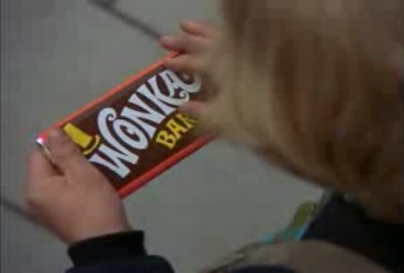Unlike Tim Burton's 2005 version of the tale, which found one auteur layering his own vision on top of another's (even as Charlie and the Chocolate Factory reverted to Roald Dahl's original title), Willy Wonka and the Chocolate Factory, 1971's first screen adaptation of the beloved novel - directed by the otherwise unknown Mel Stuart from Dahl's screenplay, with Leslie Bricusse songs - preserved the source text's satisfying moral tang, despite an approach you might call collaborative. Or schizophrenic, even: the result proved weird enough to count as Marilyn Manson's favourite film of all time.
Produced by the Quaker Oats company, Stuart's version takes place not in some all-American town that might flag up the material's idea of factory-line capitalism (what are the Oompa-Loompas, if not migrant workers?), nor the mid-Atlantic state - part-theme park, part-industrial London - envisioned by Burton. As signalled by the street scenes at the start or the view from the elevator at the end, this is a genuinely otherworldly Mitteleuropean backwater: the most "foreign" of the Golden Ticket winners, Augustus Gloop, seems the most at home here. This world is populated by intriguingly strange (male) characters: the tinker outside the Wonka factory gates ("no-one ever goes in, and no-one ever comes out") with his trolley full of cleavers, the rival chocolate boss who appears out of nowhere to whisper in the Golden Ticket winners' ears in a continental accent. (All this before we get to Willy Wonka himself.) Dahl writes in psychiatrists and even a kidnapping, the ransom for the latter being the last case of Wonka bars in the country.
On the level of performance, this is easily the equal of My Fair Lady or Mary Poppins. For Burton's film, Johnny Depp based his Wonka on Manson and Michael Jackson. Gene Wilder bases his performance on Willy Wonka: an Oz-like control freak, prone to hucksterism, but with a redeeming sideline in candy-coated practical jokes. Anglophone participants include the great Roy Kinnear as the Northern peanut magnate Mr. Salt, father to "bad egg" Veruca, and Tim Brooke-Taylor, on leave from The Goodies as a computer egghead. Between them, Peter Ostrum (Charlie) and Jack Albertson (Grandpa Bucket) make the characters of virtue - generally a weakpoint in family films - interesting (Ostrum makes particularly affecting Charlie's rationale in the light of his early Golden Ticket disappointments: "I bet those Golden Tickets make the chocolate taste terrible", "I don't care much for chocolate"), and have fun with their one lapse in the Wonka bubble room. (In a typical Dahl touch later replayed in The BFG, burping brings everyone down to earth; you have a feeling his favourite Simpsons character would be the town drunk Barney.)
It remains a remarkably sophisticated, unsentimental family film that works for children on the level of exceptional spectacle, and which seems to get richer the older one gets, perhaps because Wilder's Wonka resides in that melancholy distance between childhood and adulthood. The verbal and visual puns remain very sharp, and the nastier material - we never do learn whether Charlie's rivals survive - isn't quite jollied over by the Oompa-Loompas' catchy songs. As an example of how the film champions imagination over force-feeding (something Burton's over-stuffed version never quite pulled off), contrast the Wonka idea of Rainbow Drops ("suck them, and you'll spit seven colours") with the sweets we actually got with that name growing up: seeds of cardboard corn pumped full of artificial colouring. Yet from the way the confectioner doles out the lollipops and gobstoppers during the opening "Candyman" number, this is surely the number one film on which to have been a child extra.
(September 2007)
Willy Wonka and the Chocolate Factory is available on DVD through Warner Home Video.

No comments:
Post a Comment